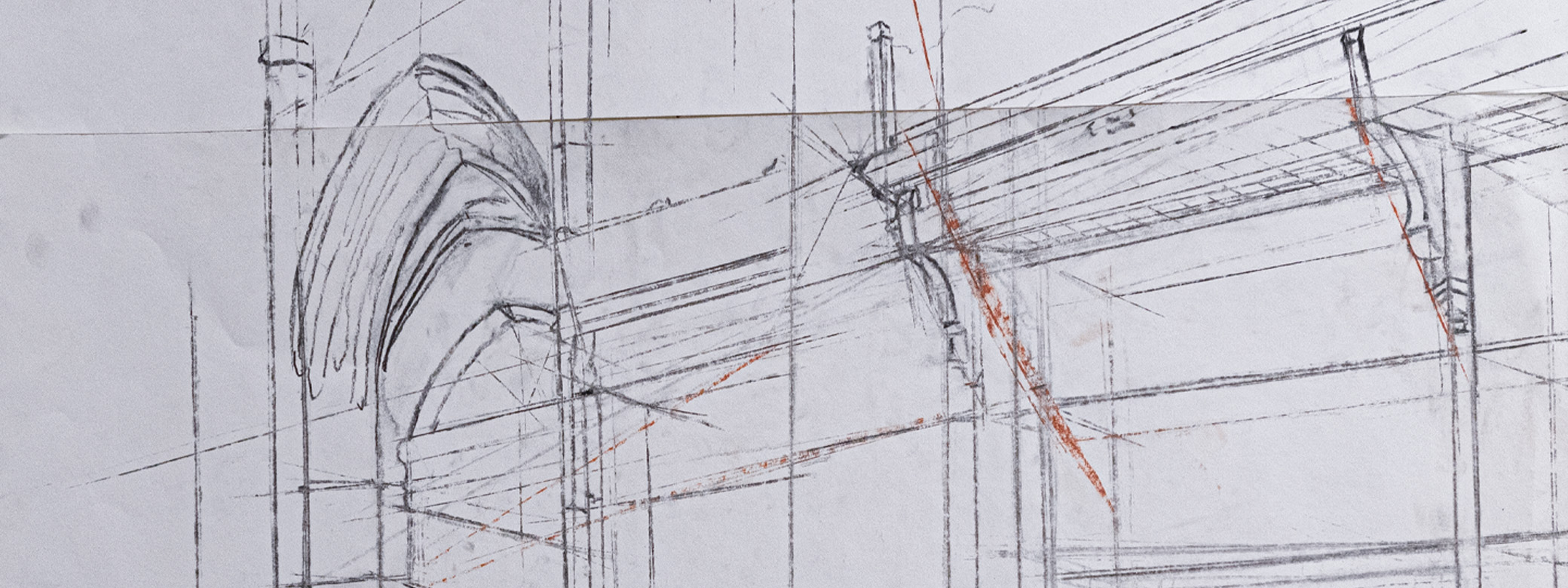The UW Simpson Center for the Humanities announced at the end of May their second book fellowships, collaborative project awards, and support for graduate research clusters for the 2022–2023 season. Two Art History faculty and two Art History graduate students received funding.
Adair Rounthwaite
Associate Professor
Rounthwaite received a second book fellowship for This Is Not My World: Art and Public Space in Socialist Zagreb, which is also supported by a Graham Foundation production grant and will be published by University of Minnesota Press. The book investigates Zagreb’s rich experimental art scene of 1975–85 and analyzes the live, interactive art events that young artists held in public spaces. In a period of instability for socialist Yugoslavia, these artists created dynamic events where they made and exhibited artworks, and performed actions that ranged from clandestine to exhibitionistic. Public space served more than a pragmatic function for artists wishing to skirt bureaucratic institutions: it was also often a central theme in works responding to the urban environment and material culture of Yugoslavia's “commodity socialism.” The book shows how this art exploited spaces ranging from shopping streets to urban beaches, and their concomitant associations with certain kinds of sociability, to critique the subject of the enthusiastic worker who was central to Yugoslav state ideology. That critique led in turn to a focus on questions of intimacy, generating dynamic and ambivalent relationships between the artists and their audiences.
Kathryn Bunn-Marcuse
Associate Professor
Second Book Fellowship
Bunn-Marcuse will be finishing a collaborative digital book Ka̱ns Hiłile, (‘Making it Right’)—A Collaborative Reframing of Kwakiutl Film and Audio Recordings with Franz Boas, 1930, which will be published in Ravenspace, a digital publication series in Indigenous studies from UW and UBC Press. The book will feature recordings of crafts, games, and dancing from the Kwagu'ł community at Tsax̱is, Fort Rupert, BC. Shaped by knowledge from Kwagu’ł experts, this book connects cultural belongings to their associated intangible rights within a robust collaborative knowledge production. Community members explore how the return of archival material contributes to assertions of hereditary privileges and fosters cultural education.
Collaborative Project
With support from the Simpson Center and the Luce Foundation, the Bill Holm Center for the Study of Northwest Native Art at the Burke Museum is hosting a curatorial colloquium in September 2022, which will provide a forum for curators of Native American and First Nations art collections to discuss issues of ethical exhibition practices, protocols of care, access, and collaboration. This will be a seminar style colloquium for both emerging and experienced curators who will bring their understanding of Indigenous artistic and cultural heritage to a space of deep conversation focusing on continued curatorial training and professional development. The Curatorial Colloquium on the Reinstallation of Permanent Galleries of Native American Art will generate discussions about how institutions — and more specifically the people in institutions — can change both policy and practice as a result of witnessing the kinship relations with historical collections that Indigenous researchers, artists, curators, staff members, and other community members bring to collections.
Nicole Block
MA Student
Block received support for Dismantling the Canon, a graduate research cluster. During the 2022–23 academic year, this reading group plans to hold monthly meetings, public talks, and workshops centered on the art versus craft divide. Craft has implied an inferior and marginal categorization in Art History, distinct from "High Art" created by the "artist genius." This distinction very clearly highlights Art History's Euro-American roots and its enmeshment with power and privilege. This hegemonic classificatory system has also meant that those whose works have been, and are still, treated within the context of the "crafts" label fall conspicuously upon gendered, classed, and racialized lines. The art versus craft debate/divide is tied to the reading group's founding mission of combatting inequalities and systemic injustices in our field and working actively towards dismantling these hierarchies in our roles as teachers, scholars, and museum professionals. Read about the origins of Dismantling the Canon.
Ananya Sikand
PhD Candidate
Sikand received funding for a Feminist Writing graduate research cluster. Academic writing is often thought of and experienced as a process of (self-)isolation; however, graduate students and writers do not always and should not have to feel the same way. This writing and research group aims attention at the “craft” of writing to build a sense of solidarity among those engaged in intensive writing, particularly on theses or dissertations. This includes creating a collective writing space where participants from across the UW campus can make friends with their writing selves and turn writing into a pleasant and empowering companion.
